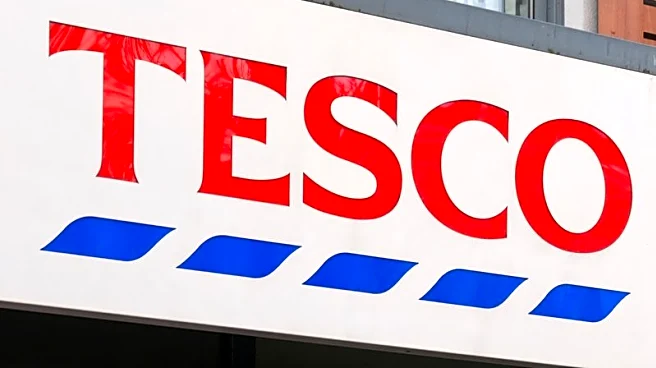What's Happening?
The Trump administration's recent decision to cut Supplemental Nutrition Assistance Program (SNAP) benefits has left millions of Americans uncertain about their food security. The government shutdown has exacerbated
the situation, with SNAP, a critical program for low-income families, facing significant funding challenges. A federal judge ordered the administration to release funds from reserves, but the administration announced it could only provide half of the monthly benefits. This decision has created confusion, as President Trump suggested benefits would only resume once the government reopens. The White House later clarified compliance with the court order, but delays in benefit distribution could last months. Historically, SNAP has never faced such cuts, marking a significant shift in the program's 60-year history.
Why It's Important?
The reduction in SNAP benefits is poised to have a profound impact on food security for millions of Americans. With 5% of U.S. households classified as very food insecure, the delay in benefits could lead to increased hunger and stress among vulnerable populations. SNAP recipients, who often have less than $1 left at the end of the month, rely heavily on these benefits to meet basic nutritional needs. The cuts could force families to turn to cheaper, ultra-processed foods, which are less nutritious and contribute to chronic health issues. This situation underscores the broader challenges of poverty and food insecurity in the U.S., highlighting the need for sustainable solutions.
What's Next?
The future of SNAP benefits remains uncertain as the government shutdown continues. The administration's compliance with the court order is expected, but logistical challenges may delay the distribution of funds for several months. This delay could prompt increased advocacy and pressure from civil society groups and political leaders to address the funding shortfall. Additionally, upcoming state-level tests on banning the purchase of sugary foods with SNAP benefits could further complicate the situation for recipients. The ongoing crisis may lead to policy discussions on reforming SNAP to better address the needs of low-income Americans.
Beyond the Headlines
The SNAP funding cuts highlight deeper issues within the U.S. food system, including the reliance on ultra-processed foods by low-income families. These foods, while affordable, contribute to health disparities and chronic diseases. The situation raises ethical questions about the accessibility of healthy food options and the role of government in ensuring food security. Long-term, this crisis could prompt a reevaluation of food assistance programs and their effectiveness in addressing poverty and health outcomes.











